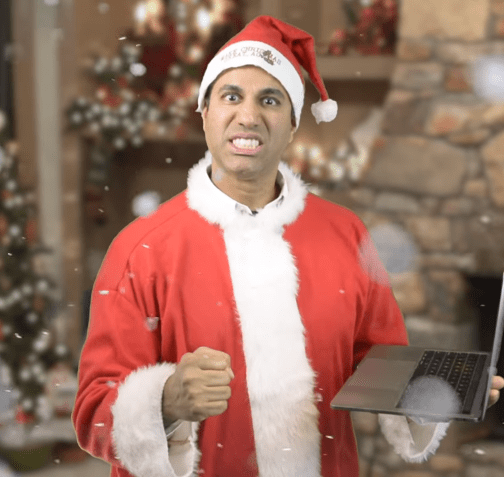
Christmas comes early for Comcast and AT&T, thanks to Ersatz Santa, FCC Chairman Ajit Pai.
In the view of FCC Chairman Ajit Pai and his Republican colleagues serving as members of the Federal Communications Commission, Monday – June 11, 2018 is Internet Freedom Day, marking the official end of net neutrality. Republican FCC commissioners, working hand-in-hand with the nation’s largest telecommunications companies, successfully abolished a pro-consumer rule that ensured all internet traffic was treated equally by your internet service provider, with a ban on paid fast lanes and other types of traffic discrimination.
The FCC website has a new look today, one that discourages consumers from bringing internet-related complaints to an agency that has invited consumers to reach out about unresolved internet problems since the earliest days of internet access.
While much of the country is focused on the Republicans’ successful repeal of open internet protections, many might have missed the fact the FCC also intends to ‘pass the buck’ on your internet problems to the Federal Trade Commission (FTC), an agency that can take a year or more to bring action against companies suspected of violating the law.
Consumers who visit the FCC’s Consumer Complaint Center will find a stripped down resource that now primarily exists to forward consumer complaints to another federal agency. Chairman Pai has made certain the experience is as discouraging as possible for those who manage to find their way to the FCC’s complaint department (emphasis ours):
If you choose to file an informal complaint with the FCC about an Internet-related issue, we will share the information you provide, including your name and contact information, with the Federal Trade Commission (FTC). Your complaint may be used to investigate cases or in a legal proceeding.
Before proceeding with your submission, please note that an informal consumer complaint should only be filed at the FCC if you have a specific issue with your provider.
If you are interested in submitting an informal complaint about an Internet-related issue, please complete this form.
The old form made no mention of the FTC, which is central to Pai’s new “hands off” policy at the FCC.
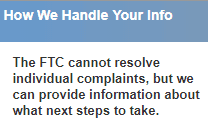 This morning, Pai told CBS that the Federal Trade Commission will now work to prevent such cases of “bad apples in the internet economy” from ripping off consumers.
This morning, Pai told CBS that the Federal Trade Commission will now work to prevent such cases of “bad apples in the internet economy” from ripping off consumers.
“We’ve empowered the FTC to take action against any company that might act in any anti-competitive way,” said Pai. “The consumer is going to be protected and we preserve the incentive for companies to build out better, faster, and cheaper internet access. Consumers need to be protected and the FTC is the only one under current law that can do that.”
But Pai’s claims don’t ring true to Gigi Sohn, who served as a counselor to former FCC Chairman Thomas Wheeler.

Sohn
“Should consumers or innovators have a complaint about fraudulent, discriminatory, privacy violating or predatory pricing practices of broadband ISPs, the FCC won’t answer their call,” Sohn said. “For the first time since the creation of broadband, the agency will not take responsibility for protecting consumers or competition.”
Neither will the FTC, which warns would-be complainants upfront on its website: “The FTC cannot resolve individual complaints, but we can provide information about what next steps to take,” which is equivalent to calling the fire department because your house is on fire and receiving a booklet that explains how to acquire and use a hose to put the fire out yourself.
ISP’s no longer need fear having a federal agency like the FCC following every consumer complaint. The FTC claims it may share your complaint with local, state, federal, and foreign law enforcement partners, or may be used to investigate cases or hold a legal proceeding. But unlike the guidelines the FCC answered to under the Obama Administration, there is no requirement to force a provider to quickly respond to you, no easy access to statistics detailing received internet-related complaints (such as the tens of thousands of complaints about data caps, throttling, and net neutrality collected by the FCC under the last administration), and no significant likelihood of action. Want an example? The FTC has been charged with ending the scourge of automated robocalls that generated more than 275,000 complaints last year… from the state of Ohio alone. In the last two years, the FTC issued press releases touting cases brought against a total of three alleged telemarketers. Has your phone stopped ringing?
Under the Trump Administration’s FCC, it is open season on consumers, and the complaint department is now closed.


 Subscribe
Subscribe Last week, AT&T announced its intention to abandon an appeal of a decision of the 9th Circuit Court of Appeals granting the Federal Trade Commission the right to continue its lawsuit against AT&T for speed throttling its “unlimited data” wireless customers.
Last week, AT&T announced its intention to abandon an appeal of a decision of the 9th Circuit Court of Appeals granting the Federal Trade Commission the right to continue its lawsuit against AT&T for speed throttling its “unlimited data” wireless customers.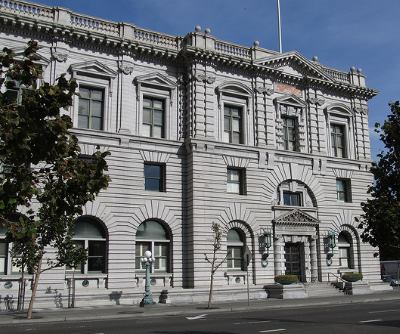
 While AT&T publicly expressed confidence about its appeal right up to the day it abandoned it,
While AT&T publicly expressed confidence about its appeal right up to the day it abandoned it, 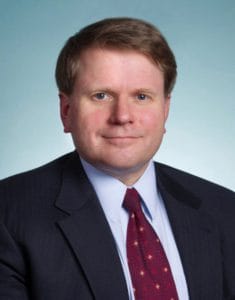
 The head of T-Mobile USA claims a merged T-Mobile and Sprint will be the best positioned to quickly deliver 5G wireless service to Americans, despite claims from industry insiders Legere’s claim is little more than vaporware.
The head of T-Mobile USA claims a merged T-Mobile and Sprint will be the best positioned to quickly deliver 5G wireless service to Americans, despite claims from industry insiders Legere’s claim is little more than vaporware. “Legere is swearing to Washington the T-Mobile 640 MHz 5G NR network will be many times faster than LTE,” Burstein said. “That isn’t true, of course. It’s far more likely to be only 25%-50% faster, or perhaps less. It may even be slower than the 500 MHz LTE/LAA T-Mobile already has in Manhattan.”
“Legere is swearing to Washington the T-Mobile 640 MHz 5G NR network will be many times faster than LTE,” Burstein said. “That isn’t true, of course. It’s far more likely to be only 25%-50% faster, or perhaps less. It may even be slower than the 500 MHz LTE/LAA T-Mobile already has in Manhattan.”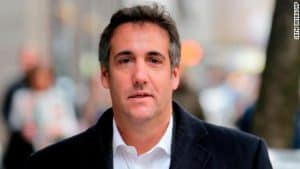

 It was O’Rielly’s response that violated federal law:
It was O’Rielly’s response that violated federal law: